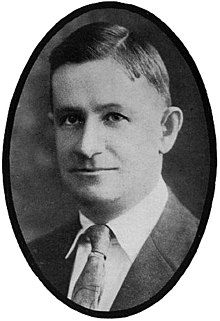Andrew Kerr

Kerr at the University of Pittsburgh, c. 1920
|
|
| Sport(s) | Football, basketball, track and field |
|---|---|
| Biographical details | |
| Born |
October 7, 1878 Cheyenne, Wyoming |
| Died | February 17, 1969 (aged 90) Tucson, Arizona |
| Coaching career (HC unless noted) | |
| Football | |
| 1913–1921 | Pittsburgh (assistant) |
| 1922–1923 | Stanford |
| 1924–1925 | Stanford (assistant) |
| 1926–1928 | Washington & Jefferson |
| 1929–1946 | Colgate |
| 1947–1949 | Lebanon Valley |
| Basketball | |
| 1921–1922 | Pittsburgh |
| 1922–1926 | Stanford |
| 1926–1928 | Washington & Jefferson |
| Track & field | |
| 1913–1922 | Pittsburgh |
| Head coaching record | |
| Overall | 137–71–14 (football) 70–39 (basketball) |
| Accomplishments and honors | |
| Awards | |
| Amos Alonzo Stagg Award (1963) | |
|
College Football Hall of Fame Inducted in 1951 (profile) |
|
Andrew "Andy" Kerr, IV (October 7, 1878 – February 17, 1969) was an American football, basketball, and track and field coach. He served as the head football coach at Stanford University (1922–1923), Washington & Jefferson College (1926–1928), Colgate University (1929–1946), and Lebanon Valley College (1947–1949), compiling a career college football record of 137–71–14. His 1932 Colgate team went a perfect 9–0, was not scored upon, and was named a national champion by Parke H. Davis. Kerr was also the head basketball coach at the University of Pittsburgh for one season (1921–1922) and at Stanford for four seasons (1922–1926), tallying a career college basketball mark of 54–26. In addition, he coached track and field at Pittsburgh from 1913 to 1921. Kerr was inducted into the College Football Hall of Fame in 1951. Colgate's home football stadium, Andy Kerr Stadium, was dedicated in his honor in 1966.
Kerr was born in Cheyenne, Wyoming to Andrew and Mary Elizabeth Kerr. His family moved east to Carlisle, Pennsylvania where Kerr attended secondary school. He attended Dickinson College, where he played baseball, and track. He then moved on to the University of Pittsburgh, where he served as the head track and field coach from 1913 until 1922, as an assistant football coach, and for one season, the head basketball coach, leading that squad to a 12–8 record in 1921–22. While at Pitt as an assistant football coach also in charge of the freshman football squad, he served as a member of the staff of legendary head coach Glenn Scobey "Pop" Warner.
...
Wikipedia
